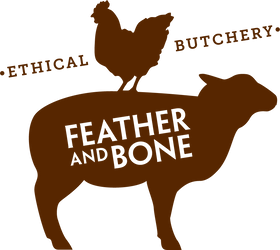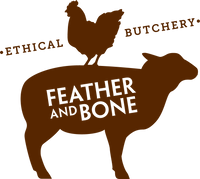Once upon a time...
TANGLEWOOD LARGE BLACK PIGS
Once upon a time all our food, whether it be plant or animal, came in all sorts of shapes, sizes and varieties and farmers and consumers could choose the breed or variety that best suited their purpose. This was good for sustaining a dynamic, healthy and sustainable ecosystem at all levels of production and consumption but not so good if you wanted to make lots of something very quickly with minimum inputs and maximum profit - diversity being an obstacle to 'progress'.
By the 1960s, Australian pig production had moved indoors and lovely breeds like Large Blacks, which are slow-growing, black-haired and tend to fat, fell out of favour in preference for leaner, faster-growing white breeds - no scary black hairs and very little scary fat. As a result, Large Blacks are now very rare here with only eight bloodlines in Australia and only a handful of farmers growing full blood, pasture-raised Large Blacks.
(Of course, there are only a handful of farmers growing pigs outside at all in Australia, but that's a story for another day.)
This is a terrible shame because there is much, aside from their irresistible lop ears, to recommend them, particularly in Australian conditions. They are docile, fecund, excellent mothers, strong, cope well with heat, their black skin prevents sunburn and they provide excellent eating. Sure, the combination of genetics and outdoor living means that they take longer to grow, but we'd argue that time equals flavour, character and superior welfare outcomes. Just think about the Sommerlad Heritage chickens, for example.

So, back to Tanglewood Farm, where Matt Bailey is among this small number of Australian producers growing pure breed Large Black pigs on the fertile Comboyne Plateau, inland from Port Macquarie on the mid-north NSW coast. Tanglewood is a farm run on regenerative principles.
'Pigs at Tanglewood Farm form an important component of our rotational forage systems that incorporate a wide variety of crops for both nutritional benefit and behavioural enrichment. In the future our pigs will also have access to Tanglewood’s developing ‘food forests’ which have been modelled on the traditional swine-keeping systems employed by European farmers throughout the centuries.'
It takes skill to pasture-raise Large Blacks that yield a carcass with manageable fat score (not too much), but Matt does this admirably and these pigs are really good.
Mind you, we think that all the pork we sell is really good and all the farmers that we represent are really good.





Leave a comment